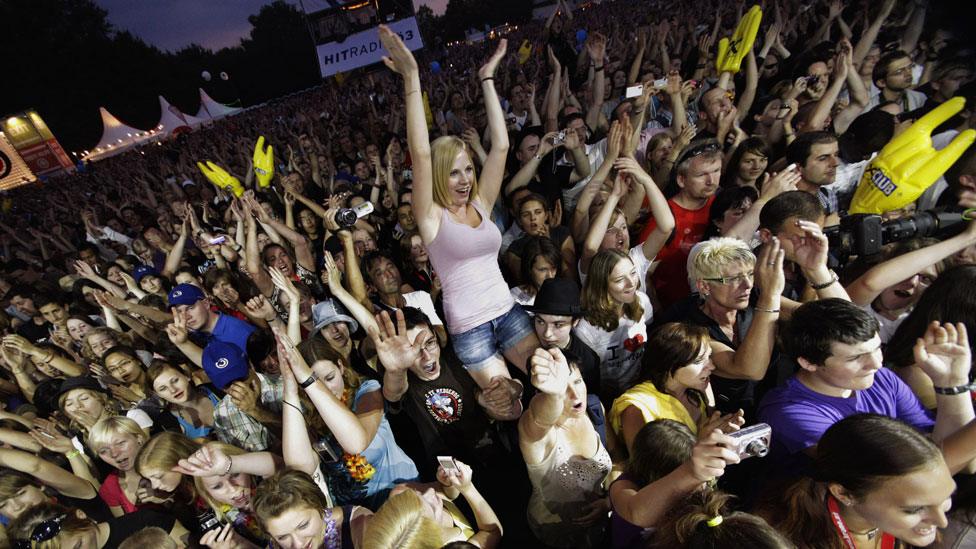Port Eliot: Evolution of the 'Elephant Fayre' festival
- Published
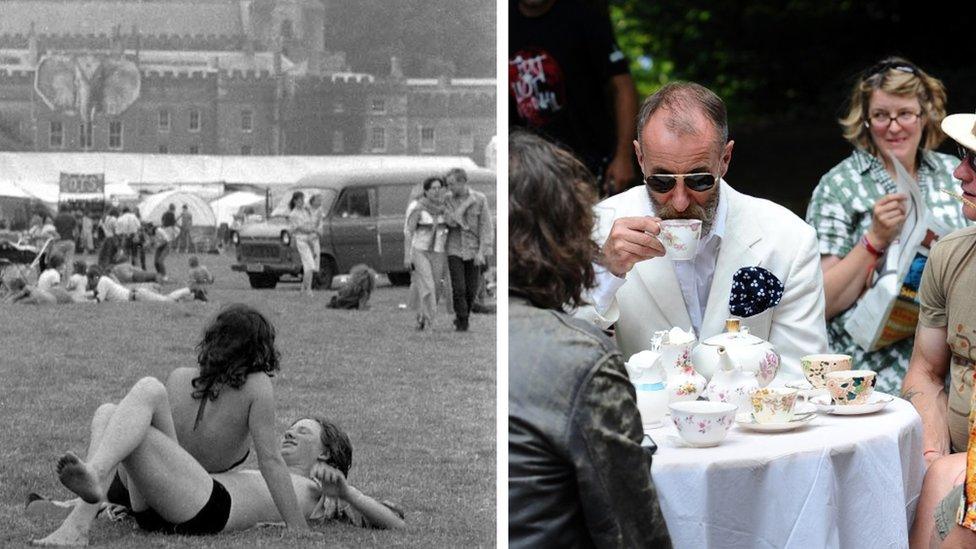
The Elephant Fayre attracted 30,000 people in 1983, but was shut down a few years later after looting, violence and heavy drug use. It returned as the Port Eliot Literary Festival in the 2000s
A festival celebrating "benign anarchy" that was first held in 1981 is being staged for the final time this week.
Cornwall's Port Eliot Festival, first held as the Elephant Fayre, is said to be no longer "financially viable".
Louis Eliot, son of the event's founder, said: "It is sad. It has always been a labour of love and that's come before commercial considerations."
Peregrine Eliot, Earl of St Germans, died in 2016 with the estate passing to his 11-year-old grandson.
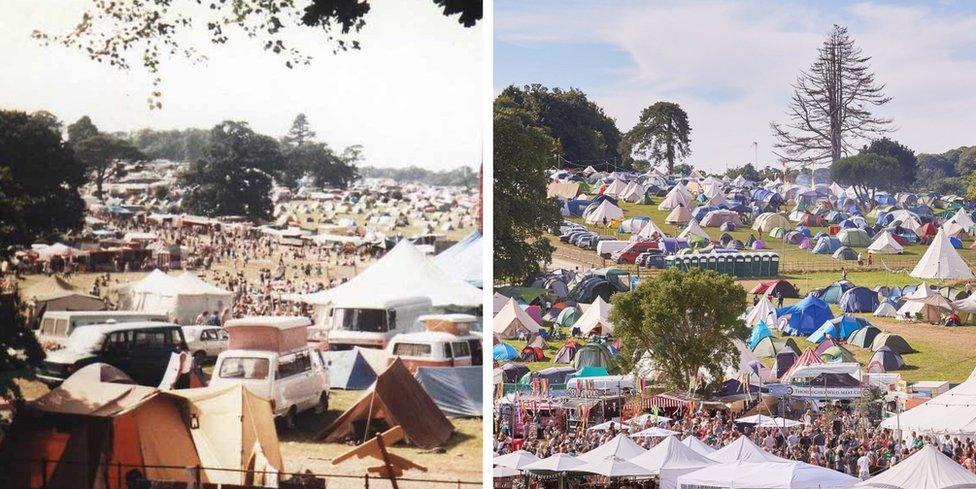
In 2003 the event was reincarnated as the Port Eliot Literary Festival, becoming the Port Eliot Festival in 2009

The festival has had a rich and at times tempestuous past, held at the 6,000-acre St Germans Estate on the banks of the Tamar Estuary where the Eliot family has lived since 1564.
After family visits to the Polgooth Fayre in the late 1970's, the Earl stepped in to offer a new venue and host his own festival, and the raucous Elephant Fayre was born.
When The Cure appeared in 1983 about 30,000 people attended, and these days the capacity is 10,000.
These pictures show how the event has evolved over nearly 40 years, as Louis Eliot reminisces about growing up around the festival.

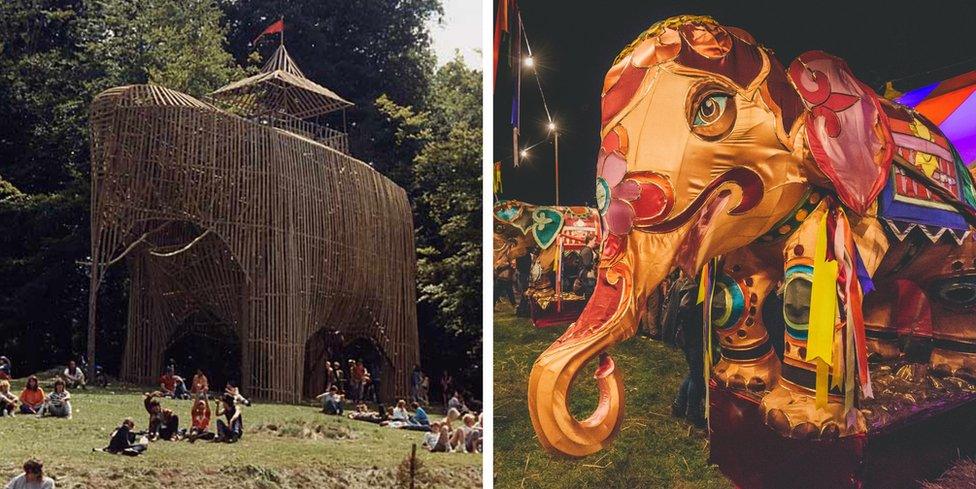

"There was a cafe run by children, for only children, inside this enormous elephant that was made of wood and 55ft (17m) tall," said Mr Eliot.
"It was a beautiful structure and certainly wouldn't get through health and safety now but nobody fell off it or got hurt."
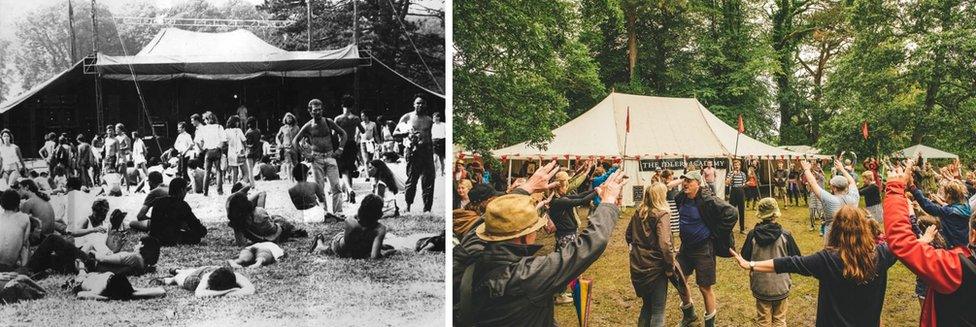

After six years, the Elephant Fayre came to an end after a series of anti-social problems caused by a group known as "the convoy", including vandalism, violence and heavy drug use. They burned down the oldest tree in the park and looted the village surgery.
"There was a small element who turned a bit nasty at the last Elephant Fayre.
"I think my dad felt it was too much to ask of the village, to put up with that."

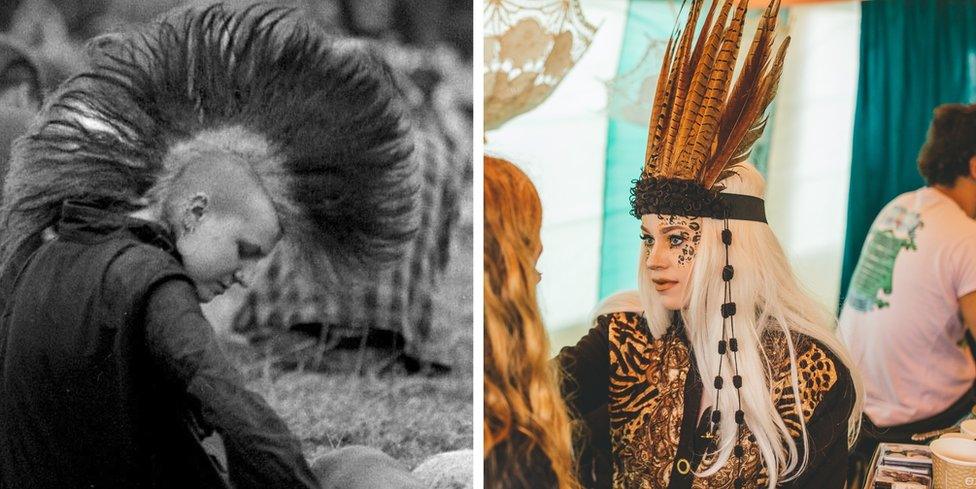

"There was a benign anarchy that prevailed at the Elephant Fayre from the beginning. The vast majority of people who came right from the beginning to the end were incredibly positive, good natured, friendly, civilised people," said Mr Eliot.
"Perhaps some of them had a different way of looking at the world to the absolute norm but there was a very positive atmosphere."
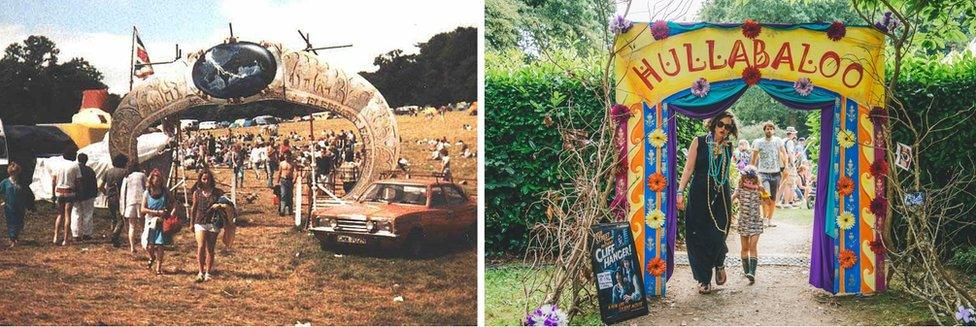

"In those days there were certainly more adults with nothing on except maybe some face paint.
"It was a different time and it felt more counter-cultural than having a festival. Nowadays festivals are pretty common and some of them are incredibly corporate and a bit bland and a bit sanitised."
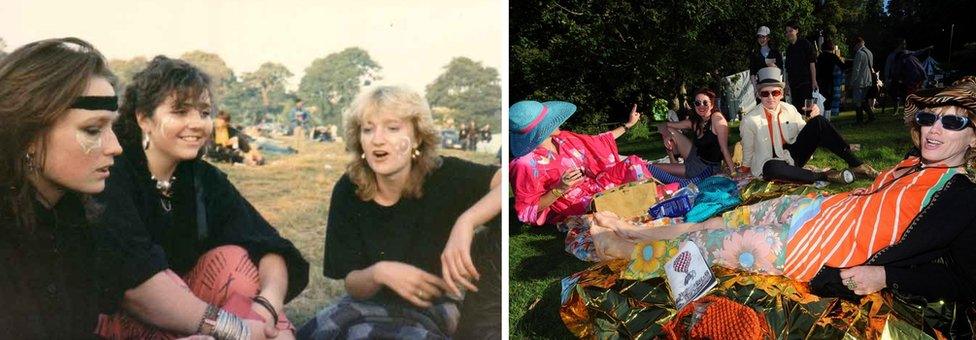

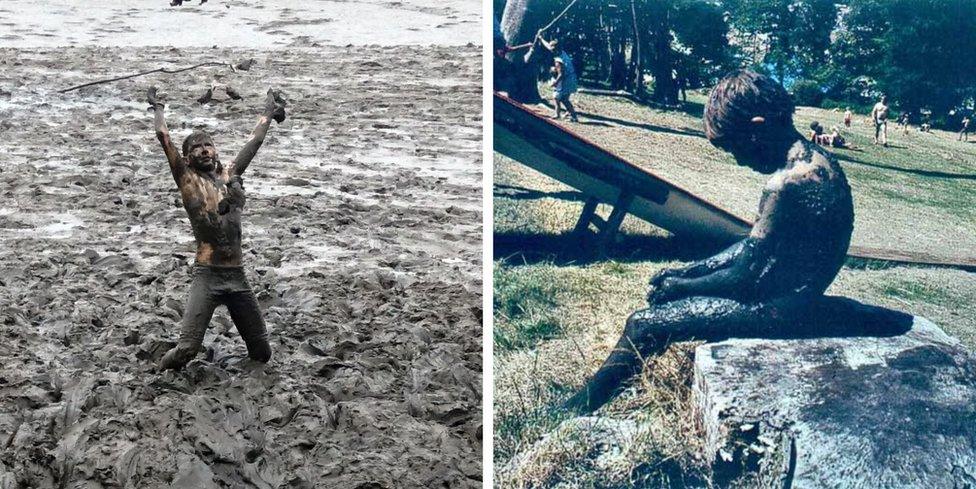

"Unlike festivals where you are standing in a field half a mile away from a massive TV screen watching a band, you're really up close on all the different stages," he said.
"That's not the most commercially sensible way of doing things but it's certainly the most enriching for the audience."
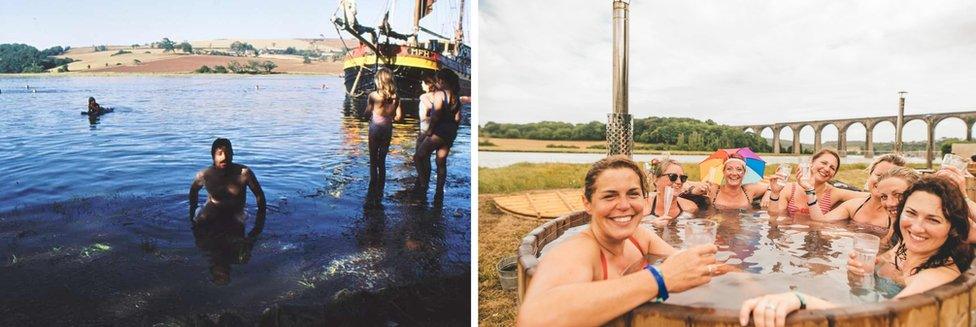

"It is sad and I can't give up on one day something happening again but it isn't going to happen in the foreseeable future."
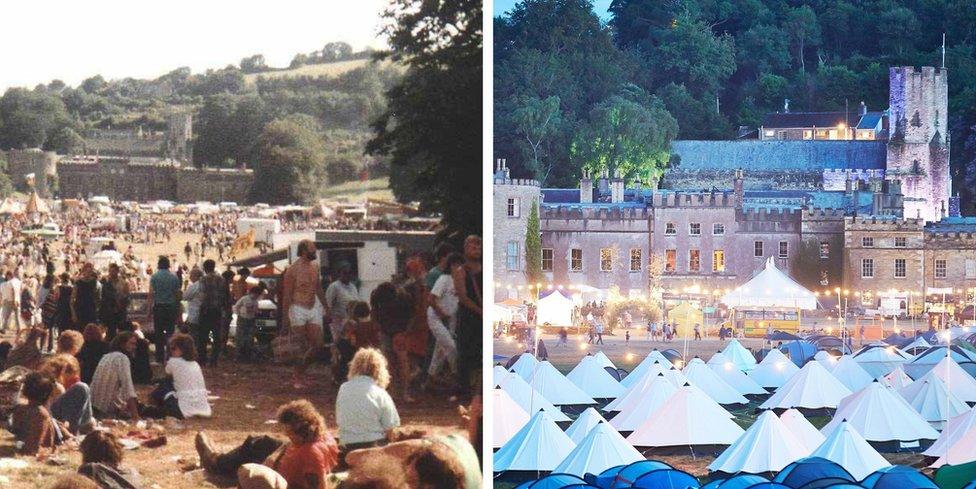

"We have got the most beautiful site and that's really the star of the show."
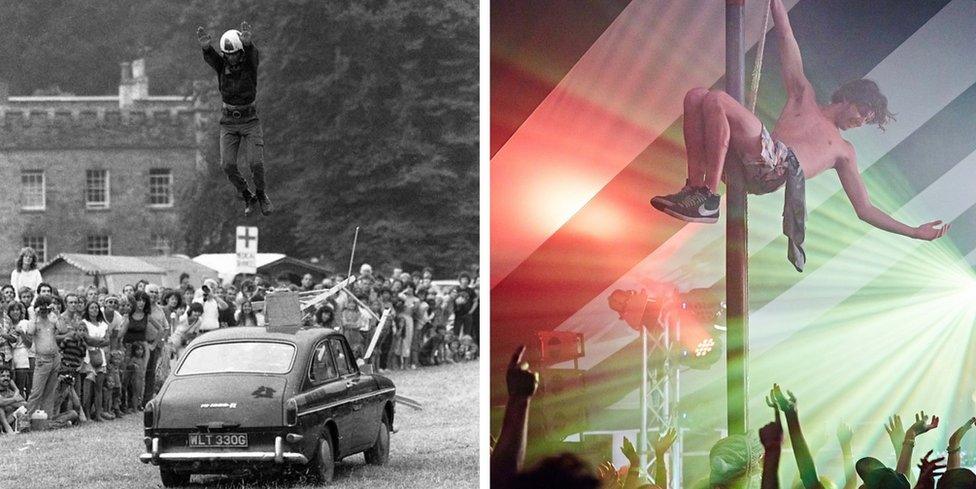

"As a child I remember a juggling act that instead of balls used livers and hearts and live rats. They were called Boris and Norris and were dressed as medieval serfs."
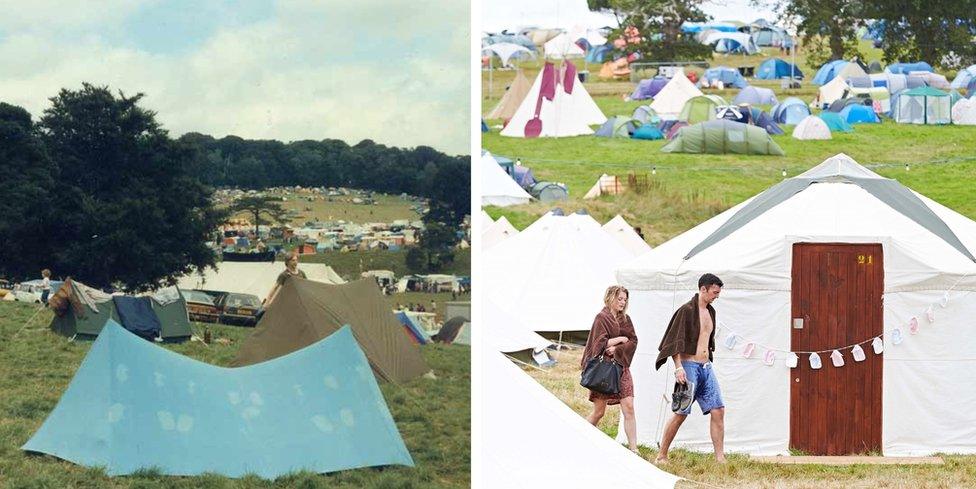

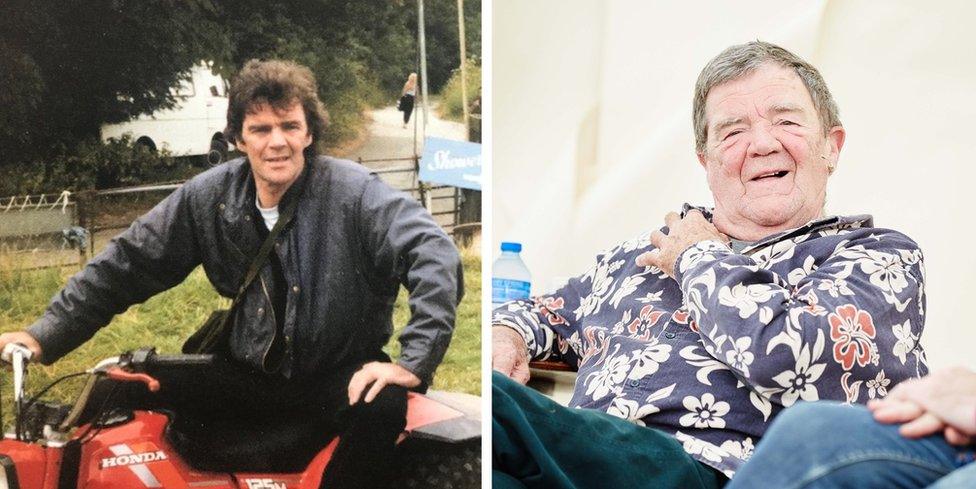
Peregrine St Germans founded the festival and died in 2016, with the estate passing to his 11-year-old grandson and being run by trustees

"He (Peregrine St Germans) loved Port Eliot so much and I think he really got a thrill out of other people coming to enjoy it. That always felt like the impetus behind the festival.
"He just enjoyed the idea of people coming and having a wonderful time."
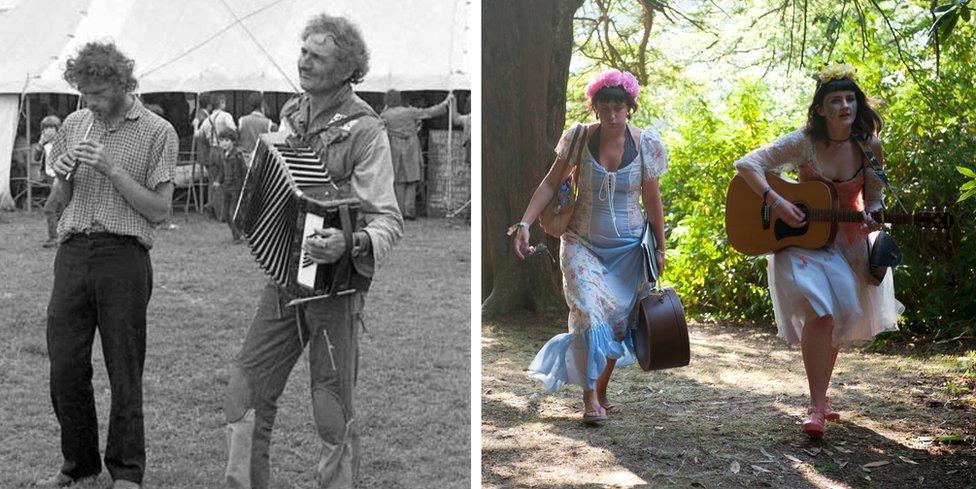

- Published20 July 2019

- Published13 June 2019

- Published4 July 2018
